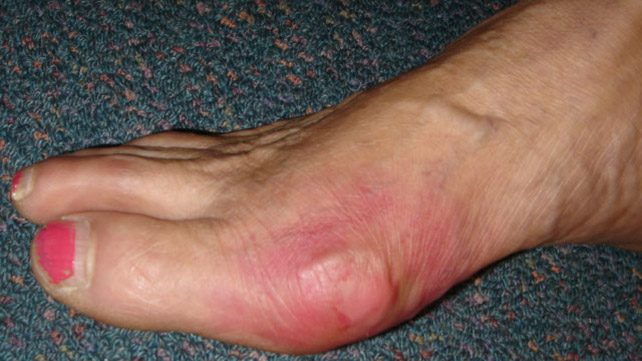Gout is usually treatable without surgery. However, this condition can cause joint deterioration, tendons to rip, and infections in the skin surrounding the joints over time. Tophi, or hard deposits, can develop on your joints and in other locations, such as your ear. Also, these tumors can be painful and large, and they can cause lasting joint injury. Three surgical techniques used to treat the hard deposits are tophi removal, joint fusion, and joint replacement surgery. Dr. Kunal Amin Cypress will recommend a procedure based on the amount of damage, the location of the tophi, and your personal preferences.
Table of Contents
Causes of gout
The production of urate crystals in bodily tissues causes gout. It frequently arises in or around joints and causes painful arthritis. When there is a surplus of uric acid in the blood, urate crystals form in the tissues. This chemical is produced by the body when purines are broken down. Hyperuricemia is a condition with too much uric acid in the blood. Additionally, gout can be caused by a reduction in uric acid excretion, increased uric acid synthesis, or high dietary consumption of purines.
Common foods that cause gout
When it comes to what causes gout, foods high in purines are the primary causes. As a result, it is best to avoid eating meals rich in purines.
- Herring
While most seafood is healthy for your health and may be consumed occasionally, some should be avoided entirely if you wish to prevent gout. It is usually best to avoid tuna and herring since they contain high levels of purines.
- Red meat
Red meat is particularly rich in purines and can easily trigger gout flare-ups. However, white meat is always safe to consume. Also, lambs have limited purines and are safe to eat.
- Sugar drinks
Sugary drinks and beverages containing high-fructose corn syrup have significant quantities of purines. The sweets in these beverages induce the body to create massive uric acid levels.
The connection between gout and alcohol
Alcohol is rich in purines. Uric acid is secreted when the body breaks down purines. More uric acid raises your chances of developing gout. Alcohol might also slow the rate at which your body eliminates uric acid. Gout does not affect everyone who consumes alcohol. However, excessive alcohol consumption (more than 12 drinks per week) might raise the risk, particularly in men. Beer is more likely than liquor to impact the risk.
Gout is an excruciatingly painful type of arthritis. A uric acid build-up in your body causes sharp crystals in your joints, causing swelling and acute agony. Gout typically begins in the big toe but can also affect other joints. Furthermore, gout is a curable condition, and the level of uric acid can be reduced with medicine and lifestyle changes. Consult your specialist about drugs that can lower uric acid levels. They can also address dietary and lifestyle changes you can make to avoid and decrease gout episodes. Call Cypress Foot & Ankle Center to schedule your appointment today to determine if you are the best candidate for gout therapies.

